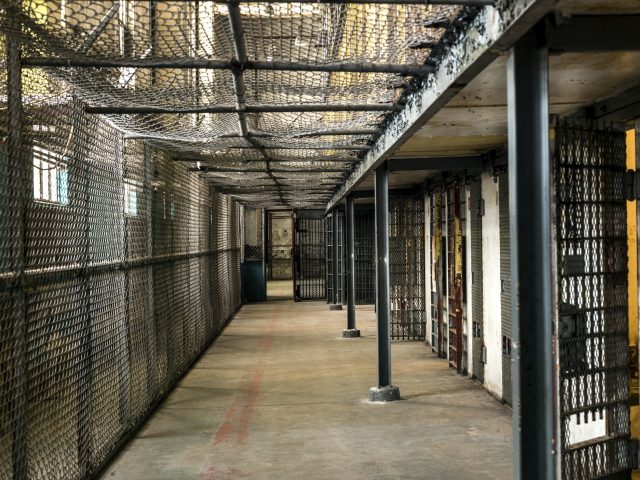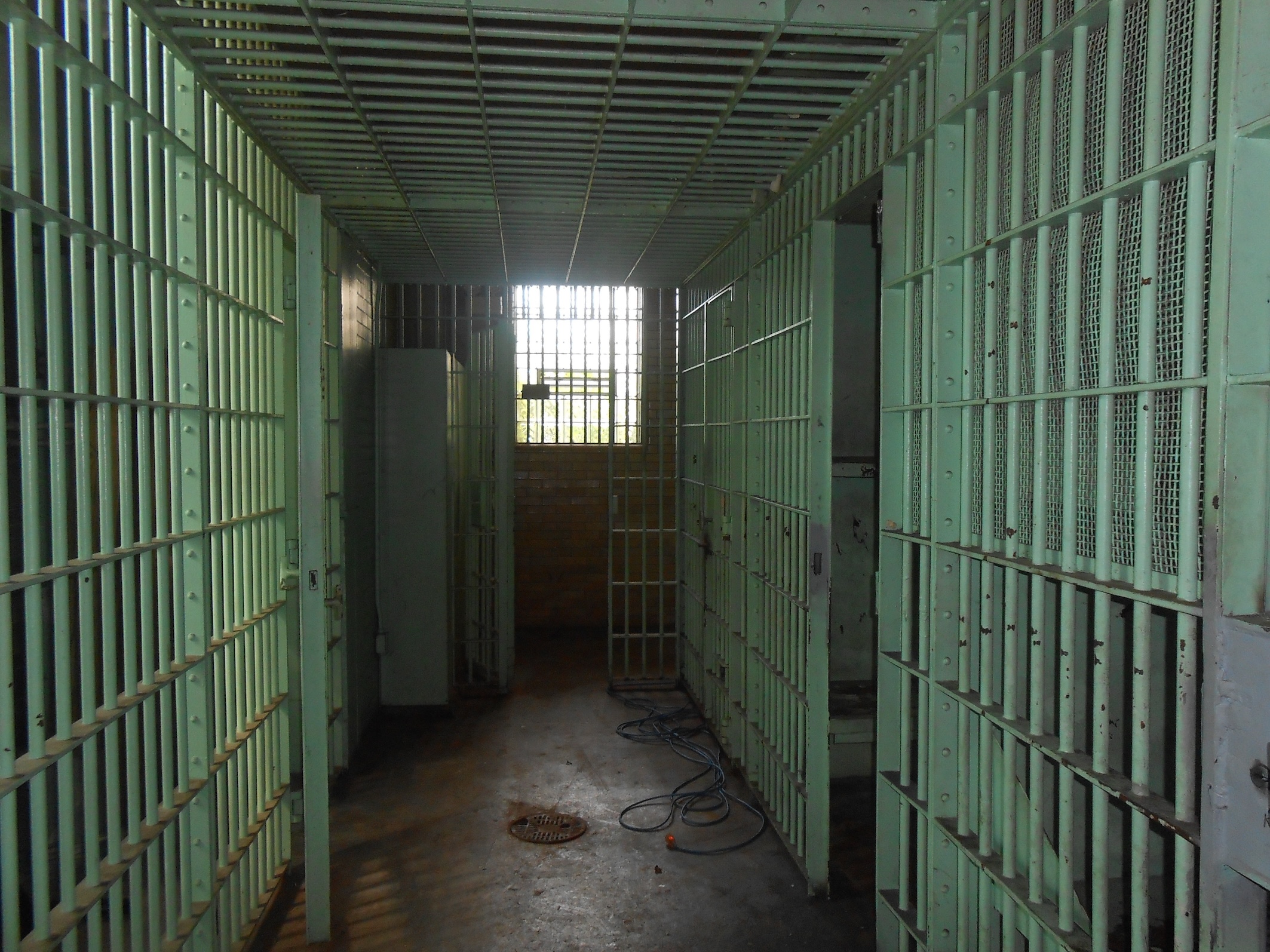
Over the last 15 years, Romania has paid almost €17 million to former detainees who have won cases against Romania at the European Court of Human Rights (ECHR). This amount was recently announced by the director of the Romanian National Administration of Penitentiaries, Dan Halchin, who suggested that most of the former detainees who have appealed to the Court in Strasbourg have complained about poor conditions of detention in Romanian prisons. Compared to the overall amount declared early last year by the Ministry of Finance to be paid in only 5 years, between 2017 and 2022, and which amounts to about 45 million euros – the amount the head of Romanian prisons spoke of would be about half. However, in terms of the number of complaints, the number of former prisoners who have complained about either the conditions of detention or irregularities during the criminal process is much higher than that of other petitioners who, for example, have appealed to the ECHR claiming that their right to property, privacy or freedom of expression have been violated. And of all the complaints that former prisoners have addressed to the European court, most concern, as the director of prisons suggested, conditions of detention, a chapter in which Romania continues to be deficient, despite the reforms undertaken and investments made.
160,000 inmates in Romanian prisons
According to the head of the National Administration of Penitentiaries in Romania, in the last 15 years, a number of 4,300 former prisoners have appealed to the ECHR, a number which, compared to the total population of 160,000 in prisons, would be insignificant, and the percentage of cases won – 2-3% and the amount of compensation – on average 4000-5000 euros, would also be negligible. At the same time, according to Director Halchin, no matter how much the conditions of detention improve, there will still be complaints to the ECHR.
“In the last 15 years, 160,000 people have been detained in the prison system. Of these, in the last 15 years, 4,300 former prisoners have won damages at the ECHR in the average amount of 4,000 to 5,000 euros, 4,300 out of 160,000, and the total amount that the Romanian state has paid so far, according to the records available to the National Administration of Prisons, is 16.8 million euros. (… (…) The percentage of cases won at the ECHR is in the range of 2 – 3%. (…) If we accommodate 100 people, in any infrastructure, whether it is a hotel, I guarantee that in 15 years there will be two or three complaints or claims. (…) It has been said many times that the Romanian state pays hundreds of millions of euros, which is not true”, said Halchin, at the presentation of the balance sheet of the ANP activity in 2023, quoted by Agerpres.
The head of Romania’s prisons stressed that the system has undergone numerous improvements in recent years and that detention conditions are not nearly as bad as prisoners claim, as evidenced by the large number of repatriations from other countries of people sentenced to custodial sentences in those countries.
“The conditions in the Romanian prison system are nowhere near as claimed or blamed by some people who are on the verge of one criminal trial or another. It can be concluded that if the conditions of detention were inadequate or if we had done something wrong in the prison system, the international courts in the countries with which we cooperate would not have taken the decision to repatriate such a significant number of people to serve their sentences in Romania,” said Dan Halchin, who noted that last year about 1,000 fugitives were repatriated.
What did former Romanian detainees complain to the ECHR about when they were not satisfied with the conditions of their accommodation?
Overcrowded cells, full of insects and rodents, where each person incarcerated had a space, on average, of about 2 square metres, insufficient beds, inadequate hygiene facilities. The solution to the problems of accommodation conditions in the Romanian penitentiary system – which operated, including after the fall of the communist regime in 1989, for almost four decades, with facilities inherited from the former period of restriction, which the competent authorities “forgot” to modernise – a controversial law, which was adopted in 2017 and repealed in 2021. The law, adopted following a 2017 ECHR landmark ruling, provided for six days to be deducted from a sentence for every 30 days served by a prisoner in unsuitable conditions. In other words, willy-nilly, the Romanian state has recognised that conditions in its prisons are unfit. The result? Between 2017 and 2012, more than 21 prisoners were released early from prisons under this law, a third of them criminals – people convicted of serious crimes such as murder, rape or robbery.
“This phenomenon is still present in the penitentiary system, although it is still improving in the year under review,” admitted the head of Romania’s prisons in early March 2023.
By 2025, Romania will have 7,800 new places of detention
However, Dan Halchin argues that efforts have been made in this direction, to combat overcrowding, which have involved two types of measures: an administrative measure, involving transfers, for example between subdivisions of units of the same regime, and second – the physical development of the prison system. According to the head of the ANP, the PNL-PSD government has committed itself, in a memorandum on the expansion of the prison infrastructure, to provide 7,800 new accommodation places between 2022 and 2025. Two new prisons have also entered the construction phase since the beginning of this year. In total, in 2023, throughout the country, the ANPR had works contracts for 28 worksites for the modernisation, expansion, rehabilitation of old detention facilities. Last year, government representatives announced that projects for the construction of new detention centres in Harghita, Covasna, Bucharest and Teleorman, as well as the rehabilitation of those in Caraș-Severin, Timiș, Mureș and Bacău, were “under implementation”.
Romania tops the list of countries with the most cases brought to the ECHR by its own citizens
In 2023, Romania maintained its leading position in the ranking of countries with the most cases brought by its own citizens before the ECHR. After Russia’s exclusion from this ranking, Romania actually moved up one place compared to the 2022 ranking. Two years ago, Romania – an EU and NATO member state – was ranked 4th after Russia, Turkey and Ukraine. Last year, however, it climbed to the ‘podium’. Turkey remained at the top of the list of complaints, with 98,341, followed by Romanians – with 2,821, Hungarians – almost 2,500 and Poles – over 1,800. Serbia, Croatia, Moldova and Greece complete the top three. The number of applications lodged with the ECHR fell by 24% last year. One possible explanation is that by 2023, half of the complaints – 75,000 were registered in 2022 – came from Russia and Turkey, and about 12% from Ukraine. Two years ago, 10,000 complaints came from this country, but by comparison, the number of complaints from Romanians has risen to 6,400.

Unfortunately, according to the same statistics, Romania is also at the top of the list of countries sanctioned by the European Court. And in the case of lost cases, the Romanian state can be sued for a second time by people who obtain a favourable decision at the ECHR. They can also apply to national courts for compensation, and the chances of an ECHR decision being overturned by a Romanian court are almost non-existent. This means that the amounts paid by the Romanian state on the Strassbourg convictions may increase. This is the famous case of FCSB football team financier Gigi Becali, who won a favourable ruling at the ECHR, which admitted that his criminal trial in Romania – in a case in which he was accused of fraudulent land transfers – had taken too long. Gigi Becali applied for and was awarded €1 in moral damages by the ECHR. Now, however, he has announced that he wants to apply to the Romanian courts for compensation. This time, he has announced that he will ask Romania for €9 million.
States that are parties to the European Convention on Human Rights (ECHR) are obliged to respect the decisions of the European Court of Human Rights (ECtHR). This means that when the ECtHR issues a judgement in a case involving a violation of human rights or fundamental freedoms, states are obliged to implement that decision and take the necessary measures to remedy the violation found. Ignoring ECHR decisions would be a violation of the international commitments of the states concerned and could attract sanctions and criticism from the international community.



 Subscribe
Subscribe